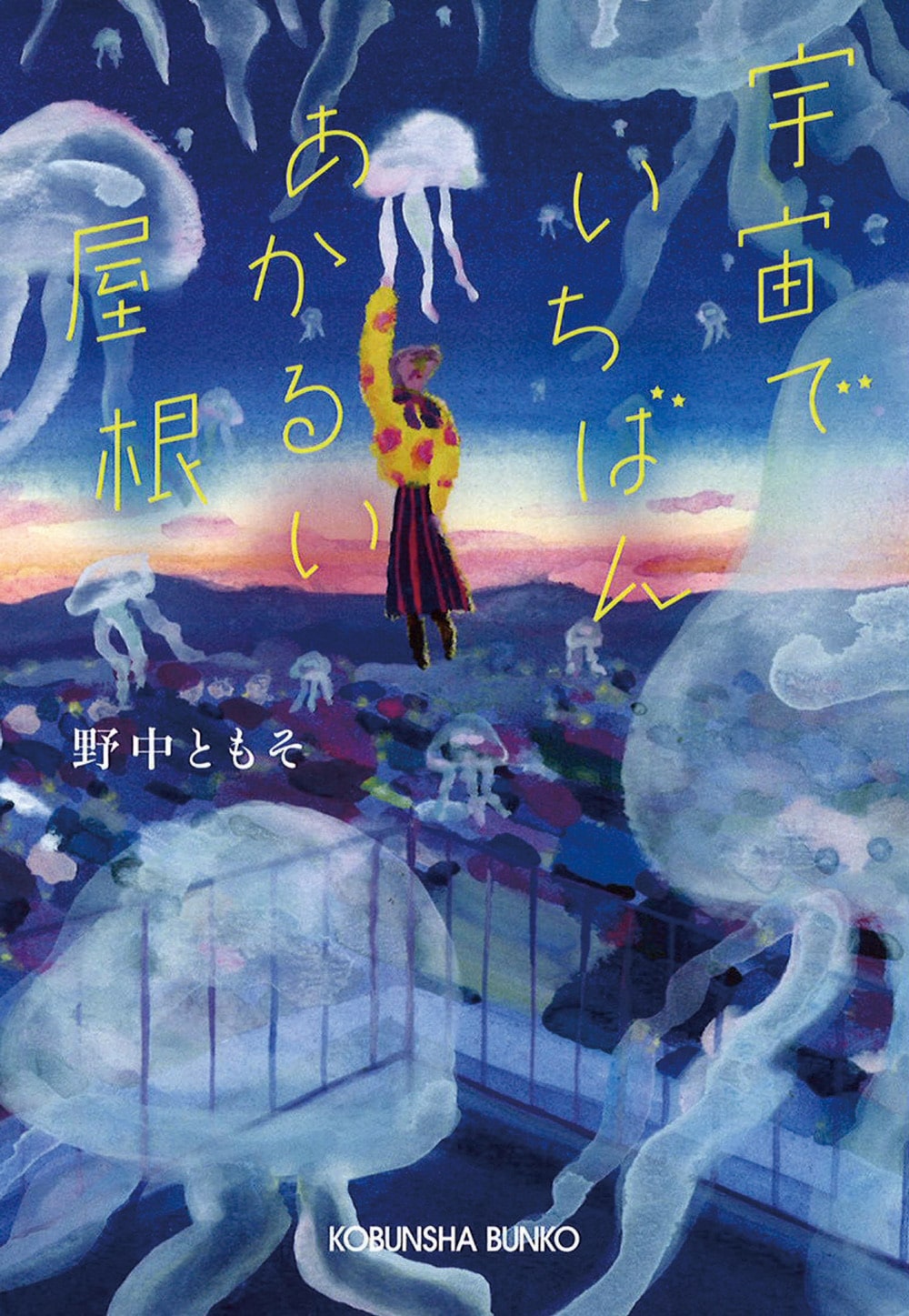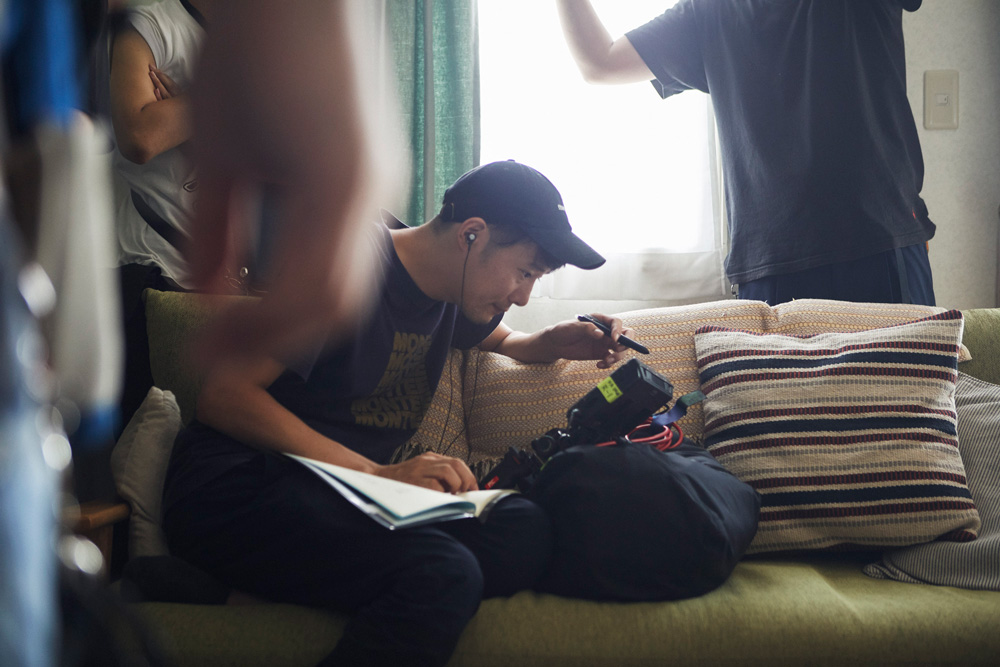![[CINEMORE ACADEMY Vol.2] Screenplay How to make the movie “The Brightest Roof in the Universe”](https://cinemore.jp/images/94f6caf438771ab99ceeb8b3c2620b1db9e746ccc3c4aff324cad471a0aeee82.jpg)
[CINEMORE ACADEMY Vol.2] Screenplay How to make the movie “The Brightest Roof in the Universe”
The happy relationship with the original author that supported the adaptation
Q: Listening to Mr. Fujii and Mr. Maeda, is it unusual for producers to express their opinions so clearly and creatively? That's what I thought...
Fujii: It's really a mixed bag. Speaking from my own experience, producer Ito (Chisei) of and Pictures, who I worked with on `` Blue Return Road '' (2018) and `` Day and Night, '' trusts the creatives and doesn't say anything. On the other hand, Mr. Kawamura (Mitsuyoshi) from Star Sands, who I worked with on `` The Journalist '', was so clear that he was like ``This is what I want to do!'' (lol).
Q: It varies from person to person, right?
Fujii: That's because producers at TV stations, producers from distribution companies, producers from production companies, freelance producers... they all come from different backgrounds. Some people became producers from casting, others from the production department, and some from advertising.
Everyone has a different way of writing a script, and for example, I was able to create a script with Hiroko that worked really well, but if you use that experience as a success and try it with someone else, it may not go well at all. The important thing when writing a script is to listen carefully to what the other person is saying and try to incorporate what you want to do into it.
After all, movies change a lot depending on the producer. When it comes to creating a script, I trust producers who are willing to make dozens of revisions, even if they are strict about the script.
Q: Regarding ``The Brightest Roof in the Universe,'' I heard that you originally planned to hire a screenwriter, but in the end the two of you ended up adapting it. How did you come to be in this group?
Maeda: When I first thought that the person I consulted with me might be looking at things a little differently than us, Mr. Fujii timidly asked me, ``Can I write about it?'' (laughs)
What surprised me was that I wanted Mr. Fujii to write it from the beginning. However, since he seemed so busy, I thought he probably wouldn't have the time or mental space, so I hesitated. So, when Fujii-san told me that, I was both surprised and very happy.
Fujii: I had a hunch that Hiroko-san would say a lot, and I thought it would be slow with Hiroko-san, me, and one other person (lol).
But fundamentally, I wanted to write the script together with Hiroko. I hadn't really worked with a producer before.
Maeda: So even after we decided to work together, Mr. Fujii was always easy to understand. Anyone would be annoyed if something they put a lot of effort into and put a lot of effort into is spoiled, but Mr. Fujii expresses it very directly. Just like the "deficit" thing I mentioned earlier...
Fujii: (laughs).
Maeda: But I wanted it to come out straight, so I thought we could create something together like this. Earlier, Mr. Fujii said that he had made a major change to the script three months ago, and he came up with the idea of setting the story in 2005. At first, it was set in the near future.
Fujii: At first, I said that I wanted to do a near-future fantasy or science fiction, like the year 202X, with drones flying in the sky.
Q: Huh! That's surprising.
Maeda: But when I heard the idea of ``setting the story in 2005,'' I felt like Michito Fujii became even more serious, and the engine suddenly started.
Fujii: The previous movie was quite emotionally damaging, so I was quite unstable at that time... (bitter smile). After finishing ``The Journalist,'' I felt a sense of emotion, and that's why I rewrote it.
Maeda: Maybe so. It was falling apart. Both mind and body.
Fujii: It really fell apart. I laugh so hard now, but back then it was really painful (bitter smile).
Maeda: But I'm glad that the result turned out to be really great.
Q: This time, the original author Nonaka-san is also very involved in the script, right? After that, I heard that you readily agreed to the adaptation, but I think it's rare for a work to have such a close connection with the original author, right?

“The brightest roof in the universe” Kobunsha Bunko
Fujii: That's right. There was never a moment when I asked the script, ``Why did you do this scene like this?'' I think that's because Hiroko-san established a strong relationship with Nonaka-san and gave us a proper presentation saying, ``This is what we want to express in this movie.''
Actually, the reason I changed the story to 2005 was because I became mentally unstable about three months before I started cranking, and I suddenly asked Mr. Nonaka, ``What was the main thing I wanted to convey in this book?'' The words I received when I heard it were great.
That was a great Arrival. Those words gave me the courage to adapt it again. In that sense, the degree of freedom was extremely high.
――――――――――――――――――――――
Arrival from Mr. Nonaka
``Time moves. Time does not leave everyone in the same form.
I'm sure there will be many days like this when a cruel and sad weight sits in my heart like a pickled stone.
But I remember. If we gently look up, what will always be there is a bright, shining roof that protects us.
You may not be able to see it now because you are under it, but if you let your mind wander freely, you will surely see the radiance of that roof.
Memories that we thought we had lost and memories of parting have become one tile after another, and will always be there, connected to each other.
Everything emits a sweet light and is there. ”
――――――――――――――――――――――
Maeda: Mr. Nonaka was really interested in changing things from the original work. He said, ``I really liked the works that Mr. Fujii and Mr. Maeda have created,'' and ``I can't wait to see how Director Fujii will develop this story.''
I'm a bit surprised, but this is the first time Nonaka's work has been made into a movie. There have been many other plans to make it into a film, but nothing has come to fruition, but Mr. Nonaka has always said, ``I'm really glad that the first film was directed by Fujii.'' Even before the commercial success of ``The Journalist,'' my trust in the director remained unchanged. That made my job as a producer a lot easier.
Q: That's a wonderful story.
Maeda: This time, I shared some work that was still in progress with Mr. Nonaka. Some directors say, ``I don't want to show things that are still in progress,'' but Mr. Fujii had a lot of trust in Mr. Nonaka, and he tried to understand my feelings and opinions. In that sense, it was really smooth.
Q: So, it was a very healthy scene this time.
Fujii: This is a state of health that has rarely been seen in recent years (lol).
Maeda: Because the director's manager came to the set and said, ``This is the first time I've seen Fujii-san smiling so calmly on set,'' and said with great joy, how was everything else on set? I thought.
Q: (laughs).

Director Fujii on the set. I have a script in hand.
Maeda: But it was a scene where not only the director but also the cast members said, ``It was really fun. I didn't want it to end.'' It was filmed in a heat wave that forced a curfew, but everyone was in good spirits. It was a good example of how when the director is having fun, everyone follows.
Fujii: I believe that every scene is a puzzle, and even if you are just one piece as the director, and you have all the great people together, it doesn't necessarily mean it will turn out to be a great movie. The ``The Journalist'' were also an improvised team, and it was a very difficult job. I don't think anyone involved had any idea that the movie would become so popular... So this time, I was able to think, ``This is going to be good,'' right on set, which was very rare, and the atmosphere was a little similar to when I was making an independent film. Everyone thought it was their movie.
This is partly due to the producer's power, and some might even say it's the director's, but everyone was captivated by the dignified appearance of Kaya Kiyohara, a 17-year-old woman who played the lead role. I think now that it was a hell of a summer. Movie fans would be excited if Kaori Momoi, a legend, appeared in the movie and they could see their chemistry every day.

